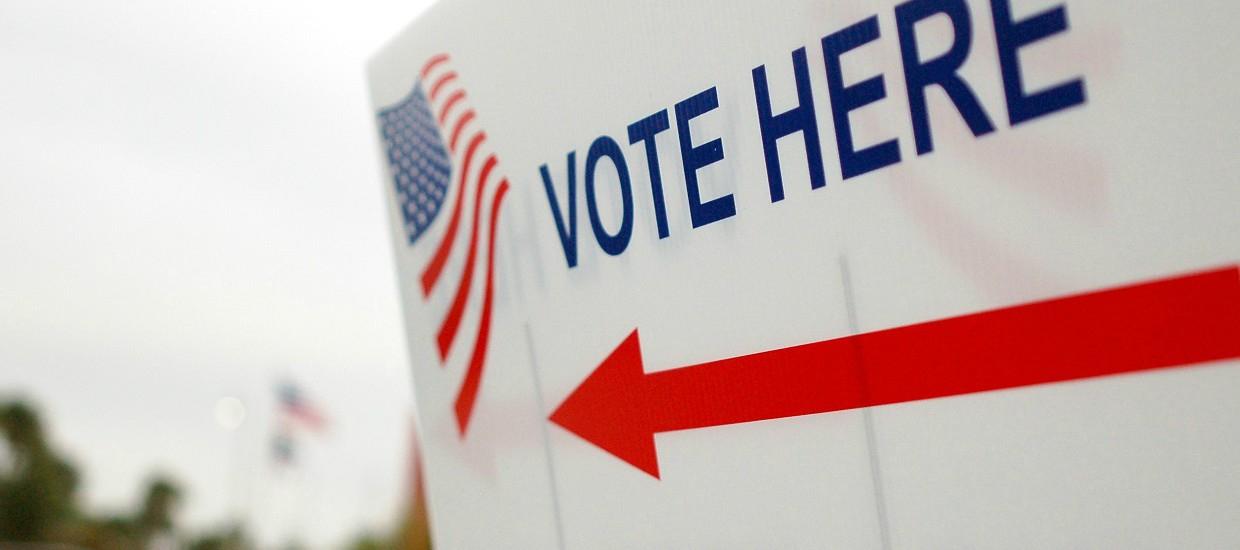By Raiana Kelly, AADM Contributing Writer
The House Oversight and Reform Committee has launched an investigation into allegations of voter suppression in Georgia, including reports of problems related to voter registration, voter access, and complications with voting machines. In a recent article published by the Atlanta Journal Constitution (AJC), Winterville voting machines were highlighted. On machine number 3 at the Winterville Train Station, located just outside of Athens, Republicans won every race. However, on each of the six other machines in the precinct, Democrats won every race. The odds of an anomaly that large are less than 1 in 1 million. This is just one of many incidents that have called into question the security of the state’s digital voting system.
Georgia was the first state in the nation to begin using electronic voting machines in 2002, and is now one of the last five states still using them. As in Georgia, those states are also in the midst of election security debates and there is a lot of consideration by lawmakers to move to paper ballots. In Georgia, that move has been passed. Federal Judge Amy Totenberg has required the state of Georgia have paper ballots. By the March 24, 2020 presidential primaries, all voting machines in Georgia will be replaced with touchscreen voting machines that print a paper ballot. If for some reason these machines cannot be implemented in each county by the required timeframe, then all voters will use a paper ballot.
There has been a lot of discussion about the occurrence of voter suppression in Georgia, especially in the years since the Supreme Court overturned Section 5 of the Voting Rights Act (VRA) in 2013. Section 5 of the VRA meant that states with a history of racial discrimination in voting, including Georgia, had to get any changes to voting measures approved by the Department of Justice (DOJ) or a U.S. District Court to ensure that the proposed changes would not disproportionately affect minority voters. Since the overturn of Section 5 of the VRA, Georgia lawmakers have created stricter voting laws, such as the exact match policy.
Georgia’s exact match policy was passed in 2017 and requires that the information on government-issued identification exactly match the name on a voter registration application. If they don’t match, often due to a missing hyphen, an extra space, or a simple typo, voters must take extra steps to verify their identity. According to an Associated Press (AP) analysis, the majority of the 53,000 voter registrations that were held in then Secretary of State Brian Kemp’s office for failing to meet the exact match protocol belonged to Black applicants.
In addition to the exact match policy, in 2017, Kemp’s office removed more than 500,000 voter names from the rolls. 107,000 of those removed were due to the controversial “use it or lose it policy,” under which people who don’t cast ballots in multiple elections can be removed from voter rolls. Kemp has defended this practice as a measure to keep accurate voter rolls and protect from fraud, but many argue that this is a form of voter suppression.
Furthermore, since 2012, over 200 polling locations have been closed in rural, impoverished areas and in areas with significant Black populations. Scholars have found that by moving or closing down a polling location, it affects the participation of voters. County officials have denied that these changes are voter suppression efforts to reduce the number of minority voters, but they have been disproportionately affected, intentionally or not. By participating in and paying attention to local and state politics, we can contact and apply pressure on our representatives to ensure that the voting measures enacted are fair. If you’d like to check your voter registration status, find your polling location, review our elected officials, or find sample ballots, please visit the Georgia My Voter Page at https://www.mvp.sos.ga.gov/MVP/mvp.do.
Athens Early/Advance Voting for the 2019 Municipal General/Special Election
Board of Elections Office
- October 14 – November 1
Hours: Monday – Friday, 8:00 a.m. – 5:00 p.m.
Extended Hours: Wednesday, Oct. 30, 8:00 a.m. – 7:00 p.m.
155 E Washington Street, Athens, GA 30601
Miriam Moore Community Center
- October 30 – November 1
Hours: Wednesday, Oct. 30, 10:00 a.m. – 7:00 p.m.
Thursday, Oct. 31, 8:00 a.m. – 5:00 p.m.
Friday, Nov. 1, 8:00 a.m. – 5:00 p.m.
410 McKinley Drive, Athens, GA 30605
Athens Regional Library
- October 30 – November 1
Hours: Wednesday, Oct. 30, 10:00 a.m. – 7:00 p.m.
Thursday, Oct. 31, 10:00 a.m. – 5:00 p.m.
Friday, Nov. 1, 10:00 a.m. – 5:00 p.m.
2025 Baxter Street, Athens, GA 30606
Athens-Clarke County Extension Office
- October 30 – November 1Hours: Wednesday, Oct. 30, 10:00 a.m. – 7:00 p.m.
Thursday, Oct. 31, 8:00 a.m. – 5:00 p.m.
Friday, Nov. 1, 8:00 a.m. – 5:00 p.m.
275 Cleveland Rd., Bogart, GA 30622
City Hall, Conference Room 103 (Lower Level)
- October 30 – November 1Hours: Wednesday, Oct. 30, 10:00 a.m. – 7:00 p.m.
Thursday, Oct. 31, 8:00 a.m. – 5:00 p.m.
Friday, Nov. 1, 8:00 a.m. – 5:00 p.m.
Address: 301 College Avenue, Athens, GA 30601
You must present one of the permitted forms of photo ID.




